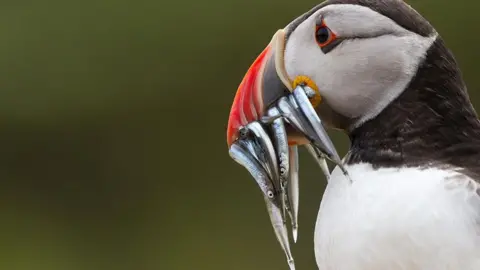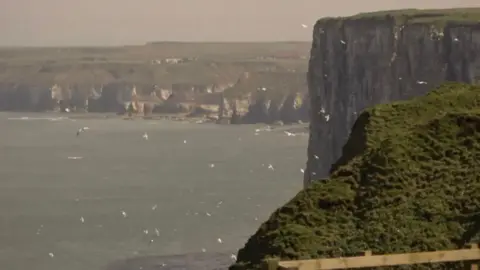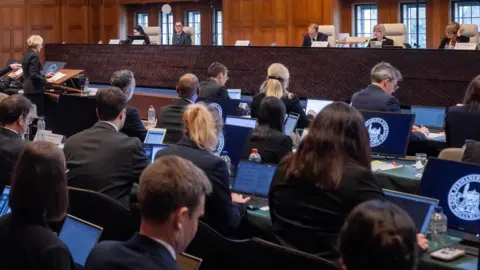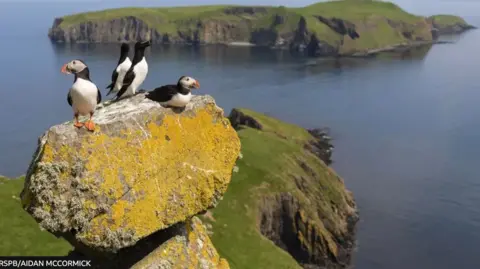Sandeel fishing ban to remain in place
 Getty Images
Getty ImagesA challenge to Britain's ban on commercial fishing for sandeels in the North Sea has been dismissed in an international court.
Sandeels are a vital source of food for marine life including seabirds that live along the UK coastline.
Two bans for English and Scottish waters were put in place in early 2024 to prohibit trawlers netting the tiny fish, following concerns that sandeel stocks were becoming too low.
Judges at the Permanent Court of Arbitration (PCA) based in The Hague ruled there is no legal obligation to reverse the closure order after the EU claimed the move was "discriminatory and disproportionate", and could threaten the future of commercial sandeel fishing in Denmark.

The Royal Society for the Protection of Birds (RSPB), which manages Bempton Cliffs in East Yorkshire, was one of several conservation organisations that called for the measure to remain in place and gave evidence in the court hearing.
Beccy Speight, the RSPB's chief executive, said: "We are absolutely delighted the panel has found the ecological case for the closure of industrial sandeel fishing is sound."
"Safeguarding sandeel stocks is a key part of the jigsaw that will help set our puffins, kittiwakes and the wider marine environment on the path to recovery."
The Department for the Environment, Food and Rural Affairs (Defra) welcomed the court's decision and said it had found "the UK successfully demonstrated that the measures taken to close English and Scottish waters were based on the best available science".
 The Permanent Court of Arbitration
The Permanent Court of ArbitrationSandeels comprise a number of species of small fish and are caught commercially for use in animal feed and in oil production.
Danish fishing organisations had argued that the North Sea ban was "unnecessary" and claimed sandeel stocks were plentiful, disputing the scientific evidence.
Speaking before the court ruling Esben Sverdrup-Jensen, from the Danish Pelagic Producers' Association, said the ban had a "massive impact" on the industry.
"It means we have lost about half of the fishing grounds that we have traditionally fished on for decades," he said.
Mr Sverdrup-Jensen disputed the claim that sandeel stocks were under threat.
"Sandeel is probably the best managed fishery in the world," he added.
 RSPB
RSPBThe ruling means a sandeel fishing ban also remains in place in the Scottish areas of the North Sea and this has been welcomed by the Scottish government, which has continuing concerns about the seabird population.
Scotland's Rural Affairs Secretary, Mairi Gougeon, said: "Protecting our marine ecosystem is vital to Scotland's environment, and to the people and communities who rely on it.
"The ruling reaffirms the appropriateness of the actions we took last year to do just that."
The Permanent Court of Arbitration ruling, which runs to nearly 300 pages, also stated the ban in English waters breached the post-Brexit trade deal because it was "disproportionate".
In a statement, the European Commission said it welcomed the ruling as it "provides clarity" on fishing rights.
It said: "The UK is required to immediately comply with the final ruling and shall inform the EU within 30 days of the [compliance] measures it will take".
A Defra spokesperson said it would "bring the UK into compliance" on this issue but the ruling did not mean the UK is legally obliged to reverse the closure of English waters.
Listen to highlights from Hull and East Yorkshire on BBC Sounds, watch the latest episode of Look North or tell us about a story you think we should be covering here.
